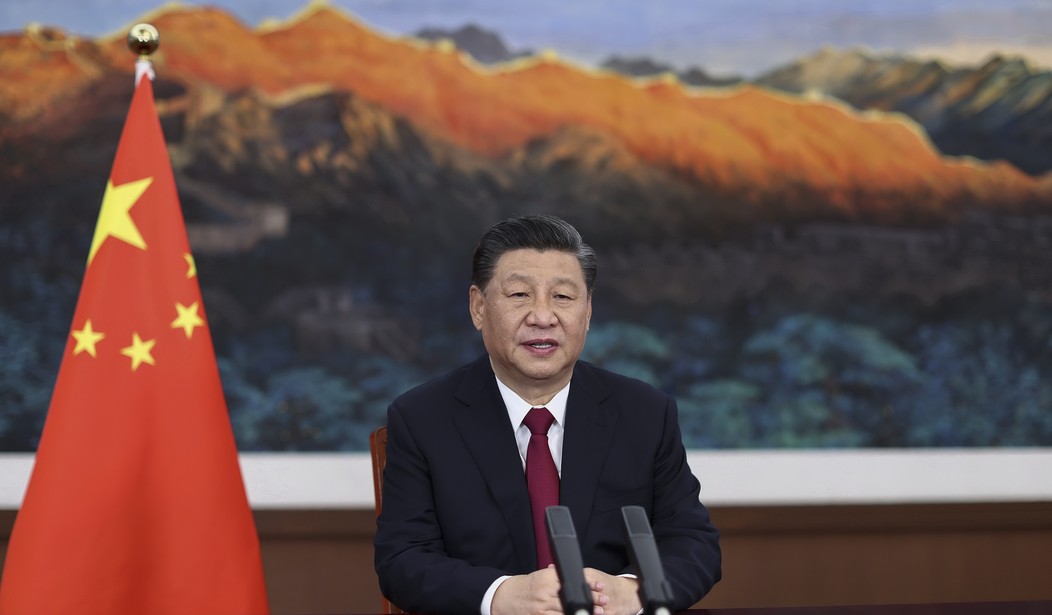Every story has an ending, and foreign policy guru Gordon Chang thinks China's story may be, if not over, at least in the last chapter. In an interview with Fox Business's Maria Bartiromo, he had some interesting insights.
Something is "very, very wrong" in Beijing right now, according to foreign policy expert Gordon Chang, who is signaling more "end-of-regime conduct" coming out of Xi Jinping’s China.
"At a time when China needs friends because it's not selling goods to the U.S., it is going out of its way to antagonize not just the Philippines, not just Taiwan, but also South Korea and Australia," Chang, a senior fellow with the Gatestone Institute, said on "Mornings with Maria" Monday.
China's increasing bellicosity has been apparent for some time now; I've commented on it many times. However, as Gordon Chang points out, China is beset with problems, not least of which is Chairman Xi.
"[Jinping] has configured the Chinese political system so that it is hostile. And also, because he's been making the claim that China has surpassed the U.S., he can't look dependent on trade with the U.S.," Chang explained. "And he certainly can't look like he's talking to the U.S. under pressure."
"This is really very perplexing behavior, and it shows that something is very, very wrong in Beijing right now."
What's interesting about the tariff situation is that China, and we can safely substitute "Chinese Communist Party" for "China" in this discussion, is adding to a list of items it's exempting from retaliatory tariffs. While Chairman Xi is loudly proclaiming China's strength in this matter, the fact that this list is growing tells us that China is backing down. They are backing down slowly and in increments, but they are backing down. My colleague Nick Arama had that story earlier this week:
See Also: Winning: China Blinks, Backs Down on Some Tariffs, With Even More to Come
What's troubling about all this is that authoritarian leaders, like Chairman Xi and his ideological counterpart in Russia, Tsar Vladimir I, tend to be suspicious of any strong, capable underlings and so surround themselves and stack the upper layers of their government with sycophants. That sets up a house of cards; as no man is immortal, sooner or later that leader has to step down, which leaves nobody really capable to take over. These events frequently lead to a power struggle among the top tier.
Case in point: When Joseph Stalin died in 1953, there was a struggle in the succession between Georgy
Malenkov, Lavrentiy Beria, Vyacheslav Molotov, Kliment Voroshilov, Nikita Khrushchev, Nikolai Bulganin, Lazar Kaganovich, and Anastas Mikoyan. These men were all capable within their own spheres, but none had emerged as an unchallenged replacement for old Joe. Stalin, who was a bit paranoid later in his life, had never indicated any successor, and so a power struggle ensued, which resulted in the restoration of a collective leadership with Kruschev, Malenkov and Beria in the top tier; many of the Stalin-era persecutions ended, several reforms were made, and one could argue that Stalin's death was the beginning of the end of the Soviet Union.
But the Soviet Union continued on for almost 40 years after Stalin's death. A major nation-state like the Soviet Union - now Russia - or China has a certain momentum.
So, the question is this: Is China now coasting downhill on that momentum?
See Also: China Is Flexing Its Muscle in the Caribbean, and That's a Problem for the United States
China has a lot of internal problems, not the least of which is a demographic collapse, thanks to its former (and idiotic) one-child policy. Their supposedly booming real estate market is a coat of paint over a pile of rotten timbers, and their economy is heavily dependent on the markets of the West, particularly the United States.
Chairman Xi knows all of this, of course. But he is in a more tenuous position than we might think; China has a number of weaknesses, but he cannot admit them, or make any concessions that reveal any vulnerabilities.
Which makes one wonder if he may decide to attempt some kind of military solution.
In the Fox Business interview, Gordon Chang concludes:
"China, without any announcements, is not collecting tariffs on important goods. So for instance, some semiconductors, aviation products, industrial chemicals, medical devices, some medicines," he listed.
"This is going to expand," Chang predicted. "It means that China has made an important concession. But it's not saying it's making a concession, which is a fascinating insight into the Chinese political system right now, which has become both intransigent and inflexible."
China's logistical push into the Caribbean, its increasing hostility towards Taiwan, its tweaking the American nose with freedom of navigation flights down the Alaskan coast - all of that, along with China's increased military spending, may well be an indication that Chairman Xi may attempt some kind of military solution.
It wouldn't be the first time a strongman leader in such a situation has tried that.
President Trump is leading America into the "Golden Age" as Democrats try desperately to stop it.
Help us continue reporting on President Trump's success. Join RedState VIP and use promo code FIGHT to get 60% off your membership.















Join the conversation as a VIP Member